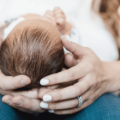Unplanned Childlessness

“My daughters are in their thirties. They always hoped to marry and planned to be starting a family by now. It is so hard to see them grieving this loss.”
It’s a common story we hear among our peers. Their single children are in their twenties, thirties and forties. Many of these are well past the age at which their parents married and began families.
As one’s educational investment expands in time and expense, marriage and family get delayed. Once embarked on a career, the fear of demotion or being overtaken by colleagues convinces young professionals that marriage and family is too costly.
When finally, the time is ‘right’, for too many couples, conceiving is not as easy or as quick as expected. Years of heartbreak follow, often with demanding and problematic infertility treatments that ultimately fail.
It is devastating to be in this predicament. The reality of involuntary infertility is acutely painful for the couple, but also for their parents who often grieve the absence of grandchildren.
Fertility Decline
Social scientists refer to this as Unplanned Childlessness, a phrase that haunts us. We came across it through the research of Dr Stephen J Shaw, a British data scientist and documentary film maker who has illuminated some troubling trends in fertility.
A fertility rate of 2.1 children per woman is statistically the minimum required to maintain a population. The rate is always applied to women rather than men as their role in fertility is more critical and time limited.
In many developed nations, the rate has been below replacement level for decades. Because the impact of declining fertility is cumulative and takes 20-30 years to manifest, it may not be obvious at first glance, especially if population growth and economic stimulus is propped up with immigration.
His global data analysis showed something unexpected: the family size of those who do have children is not changing significantly. Rather the decline in birth rates is driven primarily by the rise in the number of childless women.
In other words, women who have children are generally not having less children than previous generations. What has changed, is that more and more women are not having any children.
For example, in Australia, the proportion of childless women has almost doubled from 9% in 1981 to 16.4% in 2022.*
Real Lives
But this is not just about statistics and public policy. This situation is very personal for a lot of people because for many, like our friend’s daughters, childlessness is not a choice.
While some women (and men) do choose to forgo parenthood – and that is a choice that should be respected – for many, childlessness is imposed.
Their childlessness is due to circumstances completely beyond their control. Some actively sought a suitable mate but were unable to find someone to be their partner and parent of their children. In this instance, it’s not an issue of infertility, but of partner dearth.
Increasingly, however, childlessness is the unintended consequence of well-intentioned but under-informed choices. We regularly encounter couples who voluntarily delayed childbearing believing the opportunity would be available at a later time.
They believed that their fertility would be intact until their fifties, and that technology would solve any diminishment. They discovered too late, that their biology has real limitations.
We all make decisions based on the information available to us at the time. As we mark World Childless Week (Sept 16-24, 2024), our question is this: Are our young people given all the information they need to make truly informed choices about their fertility management?
So many people tell us that they wish someone had warned them. That in addition to the messages that taught them to fear unplanned pregnancy, someone had also told them about unplanned childlessness.


Thank you for sharing these insights. I have examined my conscience on this matter. In my experience more young people are opting to remain childless but I fear for those who decide to delay starting a family. in the expectation that they will conceive easily at the chosen time They have good reasons to do so, as you say, but I wonder if, we (who are now grandparents) have led our children to expect to have control over an aspect of life which is really a precious gift from God?
Yes – fertility is indeed a precious gift, Deborah. And I agree – the rhetoric of reproductive choice implies that we can turn fertility on and off at will. The truth is, it’s not always possible to turn fertility back on. Sadly, the pain and grief of childlessness often leads to marital breakdown – a double tragedy!